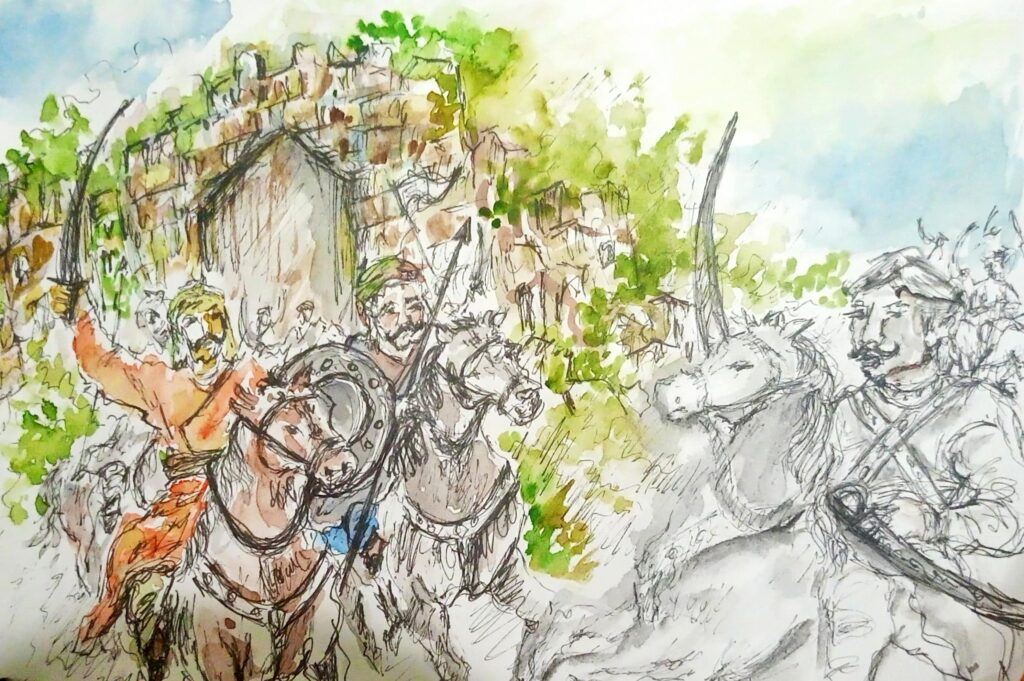
Mahoba district is a part of Chitrakoot Division also known as Alha-Udal Nagari. This district was carved out from the erstwhile Hamirpur district on 11 February 1995 by separating the erstwhile Mahoba tehsil from it. It is also known as Mahotsav-Nagar, meaning the city of festival. Mahoba is associated with the Chandela kings who ruled in Bundelkhand between 9th to 12th centuries. Gandhiji visited Mahoba city in 21 November 1929. At that time Mahoba city was in Hamirpur district of Sanyukt Prant. Mahoba, a town in the eponymous district of Bundelkhand and Kajli Mela is the main fair of Mahoba.
The Kajli Mela is associated with the Legend of great warriors Aalha and Udal. Aalha and Udal are the sons of the brave warrior Dakshraj, born in Disrapur village, some five kilometres from Mahoba.
In a twist of events befitting a fairytale, they are displaced from their home, their father murdered, and kept under the protection of Mahoba royalty, King Parmar. They are brought up as soldiers and warriors—it is fitting that those who are protected by Mahoba itself, choose to protect Mahoba. As their prowess on the field gains strength, their fame increases too; it is soon considered a matter of fact that nobody can even dream of invading Mahoba while Aalha-Udal live there.
So it is that when the brothers are in Kannauj that Mahoba finds itself endangered. And by none other than Prithviraj Chauhan – the mighty emperor of Delhi, much-fabled himself. It is said, he had not dared make any plans of conquest for Mahoba until he got to know that the legendary Aalha-Udal were not around to protect its gates.
Mahoba gains what Kannauj loses and Aalha-Udal return to fight the great Prithviraj. It is the month of saavan, Mahoba is drenched, abuzz with Kajli mela preparations, and it bodes well for the city and its residents who all celebrate Aalha-Udal’s victory over Prithviraj Chauhan with great fanfare.
Illustration by Amrapali
Many folk singing forms are disappearing with time and Aalha is one such form. Alha’s singing style is very dynamic and full of heroic sentiment. It narrates the tales of two warrior brothers, Alha and Udal, who were in the service of Raja Piramal of Mahoba.

